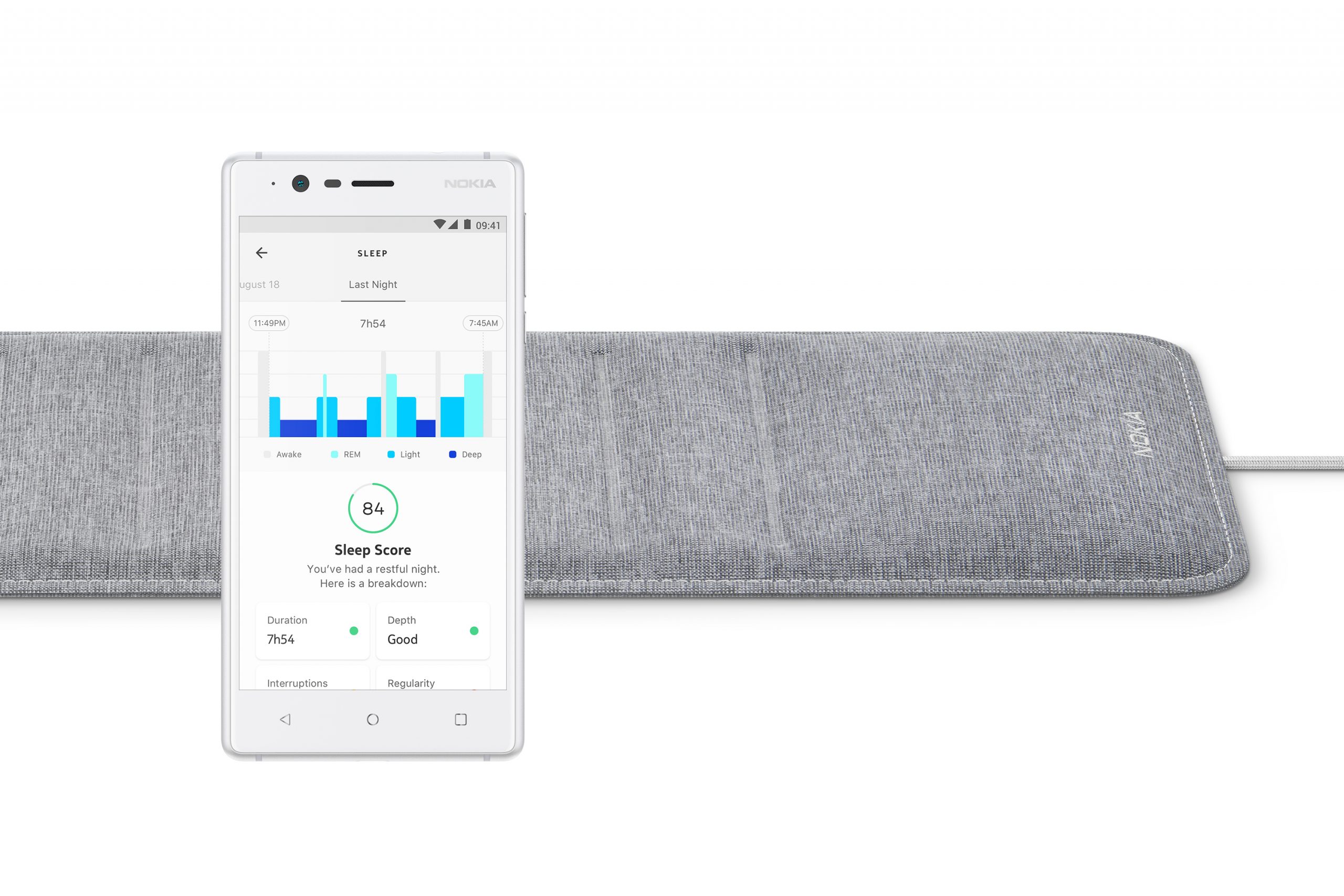
You know you feel better when you have a good night’s sleep. But according to a new study conducted by Withings, getting 40 winks does more than make you feel rested—it may be key to managing weight, moving more, and even keeping your heart healthy.
In our busy modern lives, it can be difficult to prioritize sleep. But sleep might be the most neglected health and wellness tool we have in our arsenal to control health. It turns out that the quality of our sleep affects many other aspects of our health, so if you have been struggling with managing your health, maybe you need to take two pillows and call us in the morning. Read on to find out how sleep duration and sleep quality impacts our health.
An important factor in long-term health is the overall number of hours we sleep each night. We took a look at the effect of sleep duration on several health indicators.
Proper sleep linked to higher activity
In this study, we defined “sedentary users” as those who take, on average, less than 4000 steps a day. And it turns out that people who slept 7–8 hours a night were the least likely to be sedentary. Compared to the 7–8 hour crew, there were 50% more sedentary users among those who slept an average of less than 7 hours
But before you decide to hibernate for better health, you should know that it’s not true that the more you sleep, the more active you become. In fact, among users who slept 9 hours or more there were nearly double the number of sedentary users than in the group who slept 7–8 hours a night.
Getting 7–8 hours of sleep a night linked to healthier BMI
We also found that BMI level was influenced by sleep duration: an astounding 66.5% of users who slept an average of less than 7 hours a night were overweight. This is perhaps due in part to the science behind hunger. If you don’t sleep enough, your body strains to produce the hormone leptin, which helps you feel full. Sleep deprivation also leads to an increase in the production of the hunger-inducing hormone ghrelin. It has also been shown that sleep deprivation can stimulate the part of the brain that is responsible for recognizing food as a source of pleasure.
Your heart never rests—but it needs it
Perhaps the most surprising part of the data came when we looked at the link between blood pressure and lack of sleep. We found that the percentage of hypertensive users was higher (24.4%) for users who clocked less than 7 hours sleep a night on average, compared to around 16–18% among those who slept more than 7 hours.
Sleep interruptions can throw off your day, and your fitness plan
We can also see that sleep quality can affect our behavior the next day. An important element in getting a good night’s sleep is to have as few interruptions as possible. We found that the more interruptions the user experienced, the less active he or she became on the following day. Users who had only 0–1 interruptions in their nights walked 30% more than users with 8–9 interruptions.
In many cases, we know it’s not possible to totally omit the number of sleep interruptions you experience. From partners who snore to kids who wake in the night to the neighbors who have a loud party, there’s no end to the sleep obstacles we can face. But there are ways to optimize your sleep environment, which can go a long way to improving your overall sleep. For tips on how to do this, check out our recent article, 5 Tips for Creating the Ideal Sleep Sanctuary. We hope that this data inspires you to hit the sheets and aim for the sweet spot: getting 7–8 hours a night of delicious, restful sleep.
Note about the study: The data used in the first chart is based on a random sample of 100,000 users of Withings sleep trackers who also used an activity tracker, a scale, or a blood pressure monitor. The data from the second chart contains data from more than 400,000 users of Withings sleep trackers and activity trackers. Withings guarantees the confidentiality of personal data and protects the privacy of all its users. Therefore, all data used in this study is anonymized and aggregated.



